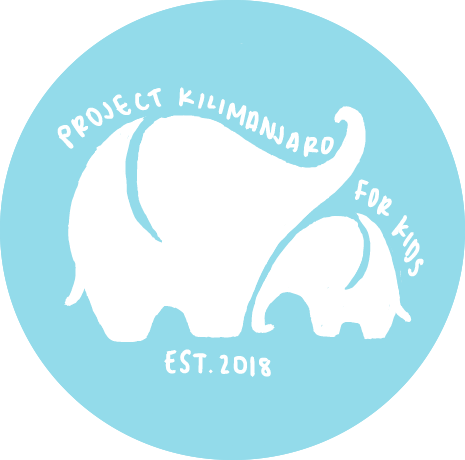Success Stories
Past Programs
Menstrual Health Management Campaign with EPN, Tanzania
In 2020, Project Kilimanjaro (PK), through the noteworthy donations of Womenchoice Industries and grassroots organization Elle Peut Naidim, facilitated a pilot project in Arusha, Tanzania focused on Menstrual Health Hygiene and Management (MHHM).
This pilot achieved the goal of developing an MHHM course that is deeply responsive to a young woman’s lived experience with menstruation, and provided sustainable hygiene resources.
During preliminary research we found that merely providing school-going Tanzanian girls with RSPs that held little instruction was not effective, because it did not help them navigate the many complexities of its use. Such complexities included water access, privacy concerns, changing areas, and stigmas surrounding menstruation. Prior to this initiative, a set of best practices surrounding RSPs in the contexts in which they are typically administered did not exist in Arusha, Tanzania.
To that end, PK implemented a 6-month long community project in which young female-identifying students in Arusha’s secondary schools, many of whom were from Maasai communities, received and used Reusable Sanitary Products (RSPs). Alongside the distribution of these resources, we provided students with a MHHM course designed to address their personal insecurities with menstruation.
Through this project, we sought to understand the concerns young women had with the use of menstrual hygiene products—if any—and to co-create creative solutions to RSPs-associated knowledge gaps and misinformation surrounding menstruation through a process of conversation. As a result, we successfully supported over 400 students in Arusha in their journey to safe menstrual health management, providing them with a 5-year supply of RSPs and educational modules catered to individual levels of understanding of MHHM that will last a lifetime.
In 2021, we analyzed the data from this program with the help of students and faculty from the Global TIES program at UC San Diego, and provided key results to our grassroots partners. In doing so, we took a step in the direction of shaping menstrual health management infrastructure in Tanzania. With these findings, our grassroots partners have the tools to iterate their business models and programs to incorporate community feedback that will assist them in better serving Tanzanian populations. Over 2022, we are thrilled to nurture these vital partnerships to empower the diverse Tanzanian population to take ownership over their healthcare and education.
“Menstrual Blood is the only source of blood that is not traumatically induced. Yet in modern society, this is the most hidden blood, the one so rarely spoken of and almost never seen, except privately by women.”
— Judy Grahn
Longido’s First HIV/AIDS Prevention and First Aid Education Workshops
In 2019, Volunteers from the University of California, San Diego - Athena Doshi, Alexis La, Talia Elliott, Stephanie Fang, Neel Gadhoke, and Rohan Patel - traveled to Tanzania to work with Maasai villages in Longido. They acquired first-aid supplies and sanitary napkins from local, East African distributers and created HIV/AIDS prevention material and First-aid education modules. Thrilled to learn about the culture of the Maasai people, our team collaborated with key leaders from Longido’s Maasai villages to reduce the prevalence of HIV/AIDS and increase sanitary conditions by scoping the requirements for clean water NGOs to facilitate providing a clean water pipeline to the villages.
During these workshops, they discussed HIV/AIDS prevention not only in the Maasai villages, but in local schools in Arusha. In addition, clothing donated by the San Diego community was distributed to government run hospitals in Arusha, including the Tengeru Government Hospital and the Meru District Hospital, and local orphanages.
The success of these HIV/Prevention workshops came alongside First-Aid education seminars that paired locally sourced resources trusted by the community with first-aid training by our certified volunteers. Our team has the incredible opportunity to simultaneously learn the norms, values, and culture of Longido’s Maasai communities, contributing to a cross-cultural understanding of community health.
Supported by our key partners, Maisha Arts Development and the University of California San Diego, our team obtained critical information regarding public health and hygiene infrastructure that continues to inform PK’s new programs in Tanzania and partnerships with global corporations. We thank the Maasai community for welcoming Project Kilimanjaro into their community. We aim to continue to support the advancement of healthcare infrastructure for indigenous communities in Tanzania as essential aspects of our mission.

